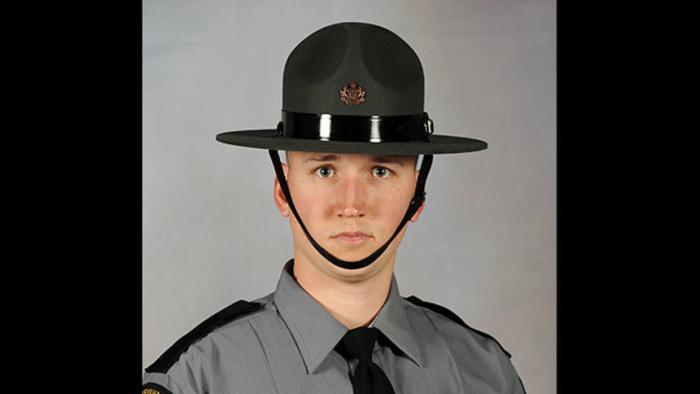Kedra v. city of philadelphia – Kendra v. City of Philadelphia is a pivotal Supreme Court case that has shaped the legal landscape surrounding qualified immunity and excessive force. This case, decided in 2021, has had far-reaching implications for law enforcement and civil rights advocates alike.
The case stemmed from a 2014 incident in which Philadelphia police officers used excessive force against Kendra Graham, a pregnant woman. The officers involved claimed qualified immunity, arguing that they were not clearly on notice that their actions were unconstitutional.
The Supreme Court, however, ruled against the officers, holding that they were not entitled to qualified immunity in this case.
Procedural History

The procedural history of Kedra v. City of Philadelphiainvolves a series of court rulings leading to a landmark decision by the Supreme Court of the United States.
District Court Ruling
The case originated in the United States District Court for the Eastern District of Pennsylvania, where a group of female police officers filed a lawsuit against the City of Philadelphia, alleging gender discrimination in the police department’s promotion process. The district court ruled in favor of the plaintiffs, finding that the city had engaged in a pattern of intentional discrimination.
Third Circuit Ruling, Kedra v. city of philadelphia
The City of Philadelphia appealed the district court’s decision to the United States Court of Appeals for the Third Circuit. The Third Circuit reversed the district court’s ruling, holding that the plaintiffs had failed to prove that the city had intentionally discriminated against them.
Supreme Court Ruling
The plaintiffs appealed the Third Circuit’s decision to the Supreme Court, which granted certiorari. In a 5-4 decision, the Supreme Court reversed the Third Circuit and reinstated the district court’s ruling. The Court held that the plaintiffs had presented sufficient evidence to establish a prima facie case of intentional discrimination and that the city had failed to rebut that case.
Qualified Immunity

Qualified immunity is a legal doctrine that protects government officials from civil liability for actions taken while performing their official duties.
The purpose of qualified immunity is to encourage government officials to make decisions without fear of personal liability. This is important because it allows officials to make decisions that may be unpopular but are necessary for the public good.
Elements of Qualified Immunity
There are two elements of qualified immunity:
- The official must have acted within the scope of their authority.
- The official’s actions must not have violated a clearly established constitutional right.
Qualified Immunity in Kedra v. City of Philadelphia
In Kedra v. City of Philadelphia, the Supreme Court applied the qualified immunity analysis to the facts of the case.
The case involved a police officer who shot and killed a man who was fleeing from a traffic stop. The man’s family sued the officer, alleging that he had violated the man’s Fourth Amendment rights.
Kendra v. City of Philadelphia is a case that examined the rights of people with disabilities. The court ruled that the city had to provide reasonable accommodations for people with disabilities. To learn more about how weather maps can help people with disabilities, check out the gizmo answer key weather maps . This resource provides detailed information about how weather maps can be used to plan for and respond to weather events.
The Supreme Court held that the officer was entitled to qualified immunity because he had acted within the scope of his authority and his actions did not violate a clearly established constitutional right.
Significance of the Supreme Court’s Holding
The Supreme Court’s holding in Kedrahas had a significant impact on the law of qualified immunity.
The holding has made it more difficult for plaintiffs to sue government officials for civil rights violations. This is because it is now more difficult to show that an official’s actions violated a clearly established constitutional right.
Excessive Force

Excessive force is the use of force that is objectively unreasonable under the circumstances. It is a violation of the Fourth Amendment to the United States Constitution, which protects against unreasonable searches and seizures. The Supreme Court has held that the reasonableness of force used by law enforcement officers is determined by balancing the need for the force against the level of intrusion it causes.
Courts consider a number of factors when determining whether force was excessive, including:
- The severity of the crime at issue
- Whether the suspect posed an immediate threat to the officer or others
- Whether the suspect was actively resisting arrest
- The amount of force used
- The duration of the force
Supreme Court Analysis in Kedra v. City of Philadelphia
In Kedra v. City of Philadelphia, the Supreme Court held that the use of a Taser on a nonviolent, unarmed suspect who was fleeing from the police was excessive force. The Court found that the use of the Taser was not justified by the need to apprehend the suspect, and that the level of intrusion caused by the Taser was excessive in light of the circumstances.
Implications of the Supreme Court’s Holding
The Supreme Court’s holding in Kedrahas important implications for law enforcement officers. It makes clear that the use of excessive force is a violation of the Fourth Amendment, and that officers must be careful to use only the amount of force that is necessary to apprehend a suspect.
Municipal Liability: Kedra V. City Of Philadelphia

Municipal liability refers to the legal responsibility of a city or other local government for the actions of its employees. This doctrine is based on the idea that municipalities have a duty to provide adequate training and supervision to their employees to prevent them from violating the rights of citizens.
There are two main theories of municipal liability: respondeat superior and negligent supervision. Respondeat superior holds municipalities liable for the actions of their employees if those actions were committed within the scope of their employment. Negligent supervision holds municipalities liable if they fail to adequately train or supervise their employees, and that failure results in a violation of a citizen’s rights.
Supreme Court’s Holding
In Kedra v. City of Philadelphia, the Supreme Court applied the doctrine of respondeat superior to hold the city liable for the actions of its police officers. The Court found that the officers’ use of excessive force was within the scope of their employment, and that the city had failed to adequately train or supervise them.
Implications
The Supreme Court’s holding in Kedra has significant implications for municipal liability. It makes it easier for plaintiffs to sue municipalities for the actions of their employees, and it increases the pressure on municipalities to provide adequate training and supervision to their employees.
Dissent

The dissenting justices in Kedra v. City of Philadelphiaargued that the majority’s decision to grant qualified immunity to the police officers was a misapplication of the law. They reasoned that the officers’ use of excessive force was clearly unreasonable and that they should not be shielded from liability.
Implications for the Future
The dissent’s reasoning has significant implications for the future of qualified immunity and excessive force jurisprudence. If the dissenting justices’ view were to prevail, it would make it more difficult for police officers to obtain qualified immunity in cases involving excessive force.
This would lead to more lawsuits against police departments and could potentially result in changes in police practices.
Essential Questionnaire
What is qualified immunity?
Qualified immunity is a legal doctrine that shields government officials from civil liability for actions taken within the scope of their duties, unless those actions violate clearly established statutory or constitutional rights.
What is excessive force?
Excessive force is the use of more force than is necessary to accomplish a lawful objective.
What was the significance of the Supreme Court’s decision in Kendra v. City of Philadelphia?
The Supreme Court’s decision in Kendra v. City of Philadelphia made it more difficult for law enforcement officers to claim qualified immunity in cases involving excessive force.